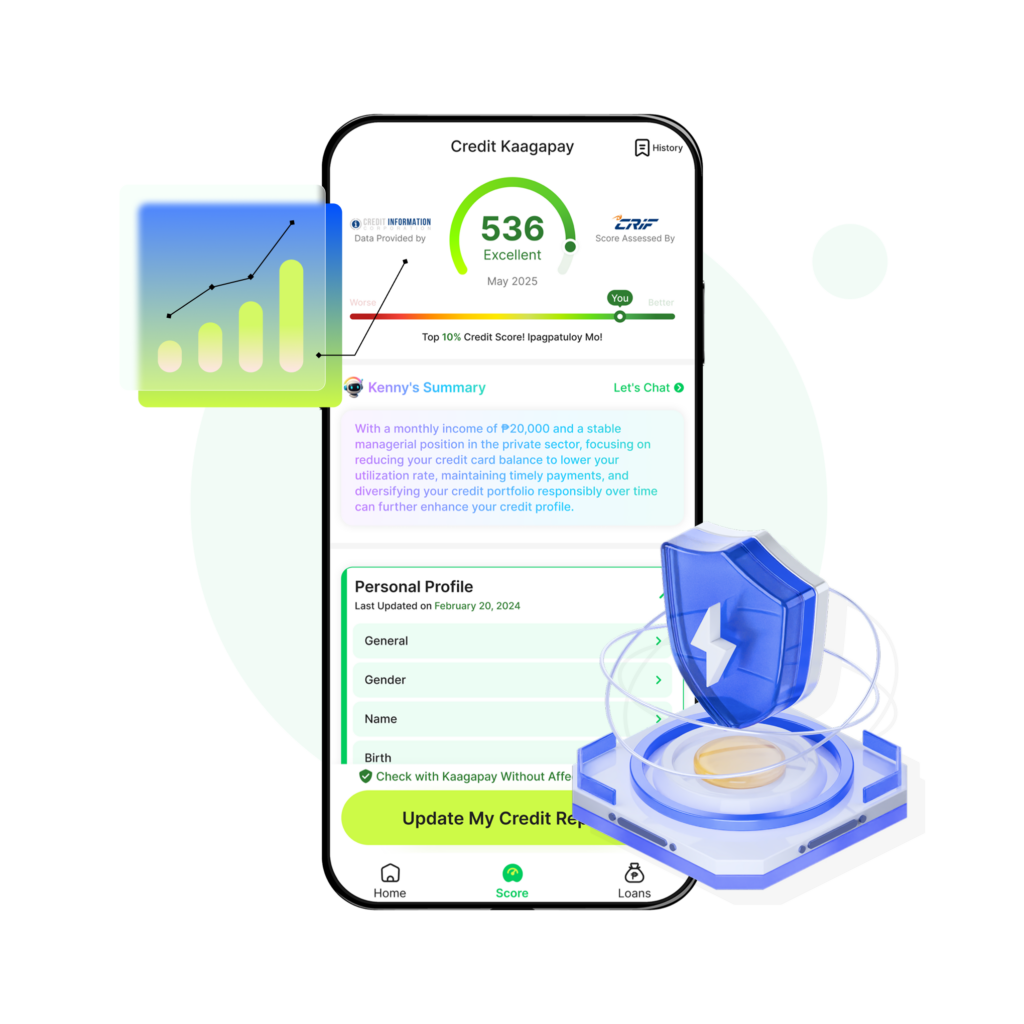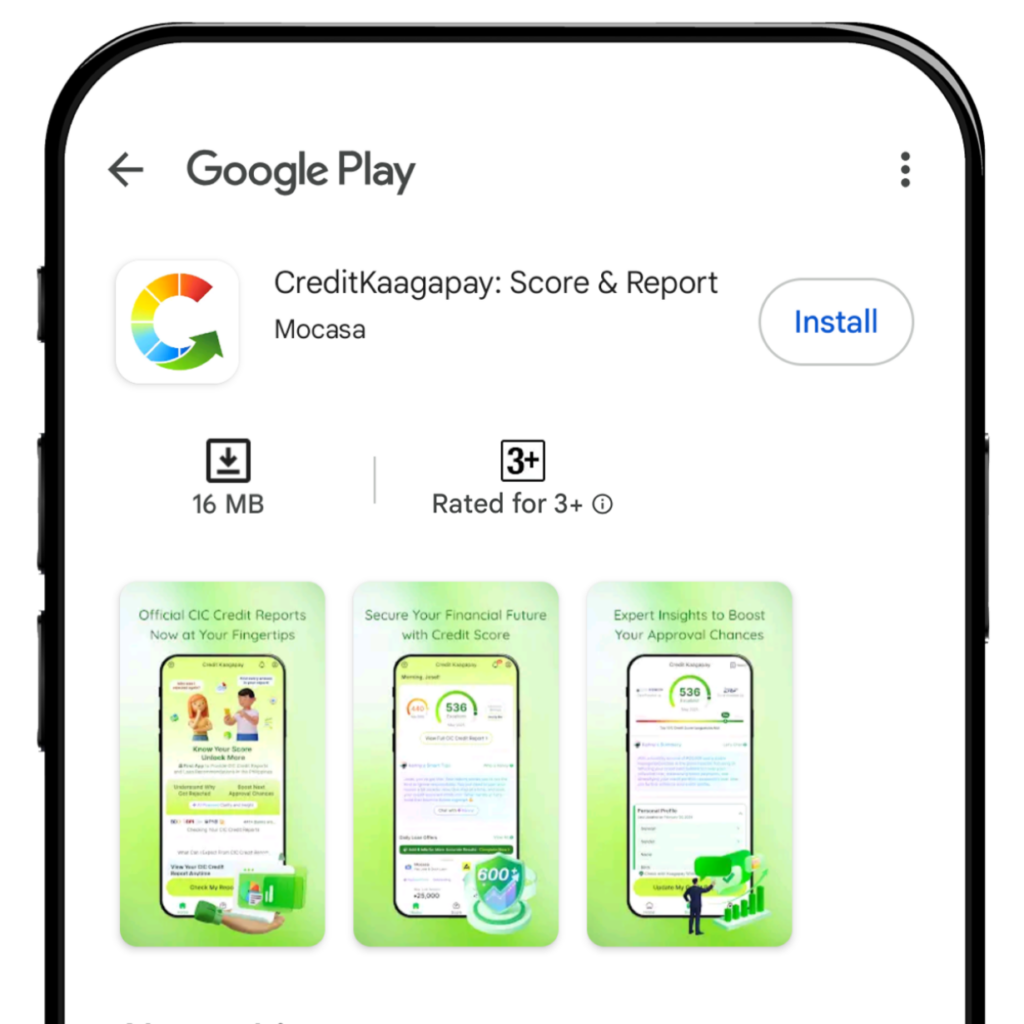-
- Demystifying the Credit Score in the Philippines
-
- Why Your Credit Score Matters: A New Perspective
-
- Access to Better Financial Products
-
- Easier Loan Approvals
-
- Housing and Rental Opportunities
-
- Entrepreneurial Ventures and Business Loans
-
- Emergency Preparedness
-
- Cultivating a Healthy Credit Score: Practical Steps
-
- Credit Kaagapay is Ready to Help

In the bustling economic landscape of the Philippines, where dreams are built on hard work and perseverance, many Filipino employees diligently climb the career ladder, securing their financial futures. For those with two years of work experience, a sense of stability often begins to settle in.
However, amid the daily grind and career aspirations, one crucial aspect often remains overlooked: the credit score. This seemingly abstract number holds significant power, quietly influencing financial opportunities and stability. Understanding and actively managing your credit score is not just a good financial habit; it’s a strategic move that can unlock a myriad of benefits and safeguard your financial well-being in the Philippines.
Demystifying the Credit Score in the Philippines
In the Philippines, your credit score is a numerical representation of your creditworthiness, typically ranging from 300 to 850, the Credit Information Corporation (CIC) explained. The higher your score, the lower the perceived risk you pose to lenders.
This score is not arbitrarily assigned; it’s a dynamic figure derived from your credit report, which is a comprehensive record of your borrowing and repayment history. The primary entity responsible for collecting and disseminating this information is the CIC, the country’s sole public credit registry. Credit Kaagapay gives you free access to CIC’s credit score reports by just downloading the app.
Several credit bureaus, such as TransUnion Philippines and CIBI are accredited by the CIC to access these credit reports and generate credit scores. These bureaus analyze various factors to calculate your score, including:
•Payment History: This is arguably the most crucial factor. Consistent and timely payments on loans, credit cards, and other financial obligations positively impact your score. Conversely, late payments or defaults can significantly lower it, the CIBI said.
•Credit Types: The diversity of your credit portfolio, such as having a mix of installment loans (e.g., car loans, housing loans) and revolving credit (e.g., credit cards), can demonstrate responsible credit management, the CIC said.
•Total Loaned Amount/Credit Utilization: This refers to the amount of credit you’re currently using compared to your total available credit. High credit utilization can signal financial distress and negatively affect your score.
•Length of Credit History: A longer history of responsible credit use generally leads to a higher score, as it provides more data for lenders to assess your financial behavior.
•New Credit Applications: While applying for new credit is sometimes necessary, frequent applications in a short period can be viewed as risky behavior and may temporarily lower your score, the CIC warned.
Generally, a score between 700 and 850 is considered excellent, 650-699 is fair, and scores below 600 are considered poor or bad, the CIC said.

Why Your Credit Score Matters: A New Perspective
For a Filipino employee with at least two years of work experience, understanding and maintaining a healthy credit score is paramount. At this stage in your career, you are likely transitioning from entry-level positions to more stable roles, and with that stability comes increased financial aspirations and responsibilities. Here’s why your credit score becomes a critical asset:
Access to Better Financial Products
After more than two years in the workforce, you might be considering significant life investments such as purchasing a car, buying a home, or even pursuing further education. A strong credit score significantly improves your chances of securing loans and credit cards with favorable terms, including lower interest rates and higher credit limits. Lenders view individuals with good credit scores as reliable borrowers, making them more willing to extend credit. This can translate into substantial savings over the life of a loan, freeing up more of your hard-earned money for other important goals.
Easier Loan Approvals
Whether it’s a personal loan for an emergency, a housing loan to finally get your own place, or a car loan for daily commute, banks and other financial institutions will scrutinize your credit score. A good score streamlines the application process, leading to quicker approvals and less hassle. Conversely, a low credit score can lead to loan rejections, or if approved, much higher interest rates and less flexible repayment terms, making your financial journey more challenging.
Housing and Rental Opportunities
Beyond traditional loans, your credit score can also influence your ability to secure housing. Landlords and real estate agencies are increasingly checking credit scores as part of their tenant screening process. A good credit history demonstrates reliability and financial responsibility, making you a more attractive candidate for rental properties or even homeownership. This is particularly relevant for young professionals looking to establish independence and move into their own spaces.
Entrepreneurial Ventures and Business Loans
As you gain experience, you might start dreaming of entrepreneurial ventures. Many small business loans and startup funding options require a personal credit check of the applicant. A robust personal credit score can be the stepping stone to securing the capital needed to launch your own business, contributing to economic growth and creating opportunities for others.
Emergency Preparedness
Life is unpredictable, and emergencies can arise at any time. A good credit score provides a safety net, allowing you to access credit quickly and affordably when unexpected expenses occur. This could be for medical emergencies, sudden job loss, or other unforeseen circumstances. Without a healthy credit score, securing emergency funds can be difficult and expensive, adding to an already stressful situation.
Building Financial Discipline
Actively monitoring and improving your credit score instills valuable financial discipline. It encourages responsible spending, timely payments, and a deeper understanding of your financial health. These habits extend beyond just your credit score, positively impacting your overall financial management and leading to greater financial freedom and security in the long run.

Cultivating a Healthy Credit Score: Practical Steps
Building and maintaining a good credit score is an ongoing process that requires consistent effort and responsible financial behavior. Here are practical steps Filipino employees can take:
-
- Pay Your Bills on Time, Every Time: This is the golden rule of credit. Set up reminders, automate payments, or use a budgeting app to ensure all your financial obligations, from credit card bills to loan amortizations, are paid by their due dates. Even a single late payment can negatively impact your score.
-
- Keep Credit Utilization Low: Aim to use no more than 30% of your available credit limit on credit cards. For example, if you have a credit card with a ₱50,000 limit, try to keep your outstanding balance below ₱15,000. High utilization signals that you might be over-reliant on credit.
-
- Review Your Credit Report Regularly: The CIC allows you to request your credit report. Regularly checking your report helps you identify any errors or fraudulent activities that could be dragging down your score. Dispute any inaccuracies immediately. Credit Kaagapay gives you free access to your credit scores from CIC by downloading the app.
-
- Avoid Opening Too Many New Credit Accounts Simultaneously: While diversifying your credit can be beneficial in the long run, opening multiple new accounts in a short period can appear risky to lenders and may temporarily lower your score. Only apply for credit when genuinely needed.
-
- Maintain a Mix of Credit Types (Responsibly): Once you have established a good payment history with one type of credit, consider responsibly adding another, such as a small personal loan or an installment plan, to demonstrate your ability to manage different forms of credit. However, only take on debt you can comfortably repay.
-
- Be Patient: Building a strong credit history takes time. Consistent responsible financial behavior over several years will naturally lead to an improved credit score. There are no quick fixes.
-
- By proactive in managing your credit score, you are not just building a good financial reputation; you are investing in your future financial freedom and stability. It’s a testament to your responsibility and a key that unlocks a wider range of opportunities in the dynamic economic landscape of the Philippines.
Credit Kaagapay is Ready to Help
For Filipino employees with two years of work experience or more, the credit score is more than just a number; it’s a powerful tool that can significantly impact your financial journey. A healthy credit score opens doors to better financial products, smoother loan approvals, improved housing opportunities, and even supports entrepreneurial aspirations. More importantly, actively managing your credit score fosters financial discipline and provides a crucial safety net for unforeseen circumstances. By understanding how your credit score works and taking proactive steps to maintain and improve it, you are not just securing your present; you are building a solid foundation for a prosperous and financially secure future. Download the Credit Kaagapay app and manage your credit score for a better future.




